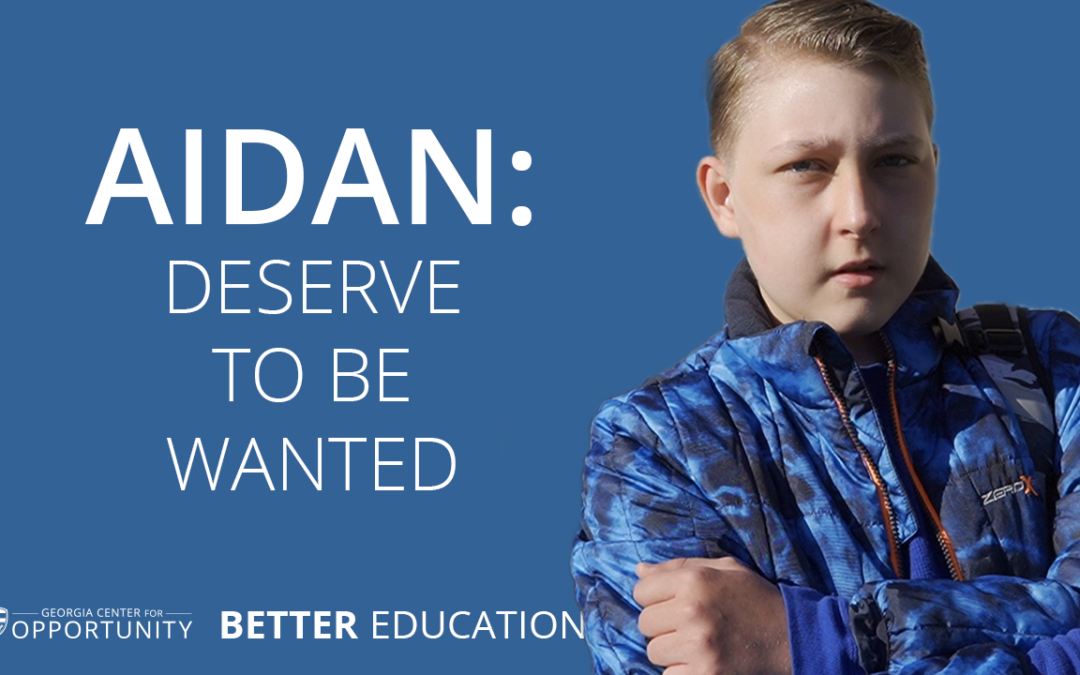Here are those objections and our responses from the Georgia Center for Opportunity team:
“There is no requirement that a student be re-evaluated to determine the students’ continued needs or eligibility. For example, an elementary student might have an IEP to receive speech therapy that they would not need after a few years.”
This seems like a red herring. It’s unfair to burden both public school systems and parents with constant revaluations in an attempt to catch a handful who no longer warrant an Individualized Learning Plan (IEP) or 504 plan. This would also create a massive burden on schools to evaluate kids who are no longer in the public school system.
The bottom line is that if a child is succeeding in a new environment, that’s a good thing. It doesn’t mean we should take them away from that school and put them back in an environment where they were not succeeding. We must prioritize the needs of individual students and get them the help they need. That standard is even more important for our neighbors in the special-needs community.
“There is no requirement that a private school provide the services in the IEP or 504 plan that the taxpayers are funding them to receive.”
No, but parents aren’t going to send their child to a school (especially if they need to come out of pocket with resources to do so) if the school cannot or is not meeting the child’s needs.
“There is no report to the taxpayers as to whether the students are receiving services or not.”
“Receiving services” is not an indicator of success. Children who are enrolled in public schools are also “receiving services,” but if their families choose to leave based on this scholarship, those services presumably are not meeting their needs. Parents have their children in the school of their choice voluntarily and they aren’t going to choose a school that can’t meet their child’s needs.
“Parents must give up all federal rights under IDEA or Section 504 of the Rehabilitation Act to take the voucher.”
IDEA was something disability advocates had to fight for so that public schools would treat students with special needs the right way. IDEA rights only apply to public schools, so by definition if a child is not in public school, those specific rights do not apply.
This doesn’t mean that these students are being mistreated. In fact, a parent has the ability to leave any private school that isn’t serving their child well, which is currently not the case for public schools. If a child returns to public school at any time, their rights under IDEA are still fully intact.
An imperfect analogy: You carry insurance on your car in case something happens. Then you move to a large city and can either walk or take the subway everywhere, so you sell the car. Someone might say, “But you gave up your insurance!” No, you gave up your car.
“There has never been an independent evaluation of the voucher program so we have no idea about a number of things including its effectiveness.”
There is literally a report that comes out on the program every year that includes 40 pages or so of information including academic performance data.
Parental satisfaction has been the major measure for accountability for this program and nothing in this bill changes that. That is completely inconsistent with a belief in transparency and accountability for the use of taxpayer dollars.
The issue lands here, providing quality education to all students is the goal and responsibility of our education system. It is a system that must take child and parental needs into the equation. When quality education is not accessible to a child (for WHATEVER reason that is) we must provide options. It is our responsibility to give each child a sense of purpose & belonging as we prepare them for their future.







